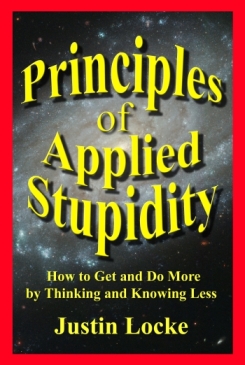So I was watching Sandra Day O’Connor on TV the other day. She was talking about the need to teach “civics” in public schools, and how she had created some sort of computer game for kids to play that would teach them about how American government works.
I was somewhat intrigued. For one thing, I am a constitutional law dilettante (it’s really quite fascinating stuff–I highly recommend “Quarrels That Have Shaped the Constitution.”). Also, many years ago, I was commissioned to create a game for little kids that would teach them about constitutional law. I came up with a concept called “Us versus them.” The kids in a classroom are divided into three teams: plaintiff, defendant, and the court. The plaintiff and defendant teams argue their respective sides of an actual (historical) Supreme Court case to the kids on the court team. Whichever team gets the court to rule their way gets points. If the court team kids vote the same way the Supreme Court did, they split the points with the winning team.. If a plaintiff or defendant team gets the court to rule their way, and it’s the opposite of how the court ruled in the actual case, they get ALL the points. You’d be amazed at how interested kids get in constitutional law when you turn it into a game.
Anyway, I thought it would be interesting to share this with Ms. O’Connor, and so I got online, and much to my amazement, I simply could not find her. I mean, there’s lots of information about her, but she does not have a facebook page or a web site. Sandra, honey, baby, darling… you know a lot about the law, but you know precious little about communicating with kids these days.
This little experience points out something that I am continually finding to be oh so true of modern life: nobody is an expert at everything. People who are absolutely fabulously trained, experienced, an accredited geniuses at one thing are often total dolts when they step outside of that narrow milieu. This problem is rampant, but our fear of “looking stupid” means it’s not something anyone is willing to admit, and that means nothing gets done about it. We are drowning in pretension.
Another perfect illustration of this is those financial geniuses that sent us over the brink. They knew everything about numbers and money, but they knew absolutely nothing about history or psychology. What is worse, they did not think they needed to know about history or psychology.
A long time ago, I was working for a fund-raising consultant. After a particularly aggravating day with a customer, I looked at him and said, “I just can’t believe how stupid these customers of yours are.” He looked at me with a completely straight face and said, “if they were smart, they wouldn’t need to hire us.” So I suppose that, at some point, ignorance is good for business.
One of the Principles of Applied Stupidity states (more or less) that no matter how smart or knowledgeable someone is, what they don’t know is far greater.
This is an important thing to remember as you are selling your services. Something that seems perfectly obvious and simple to you looks like Chinese algebra to someone else. It’s a pity Sandra Day O’Connor knows so much about the law and absolutely nothing about social media, as civics are important.
© Justin Locke

